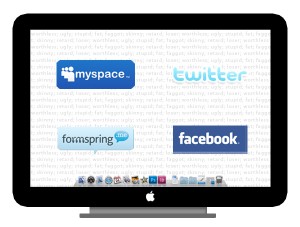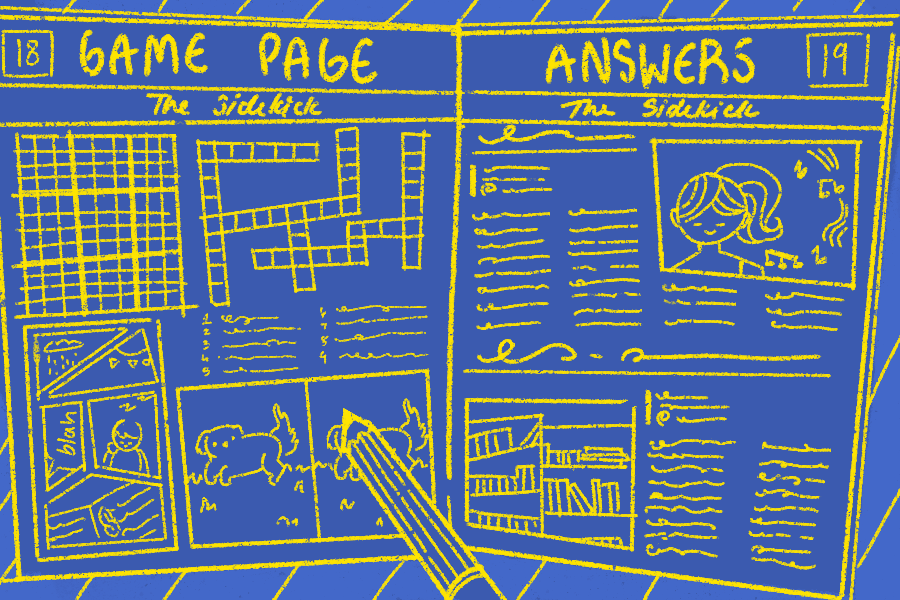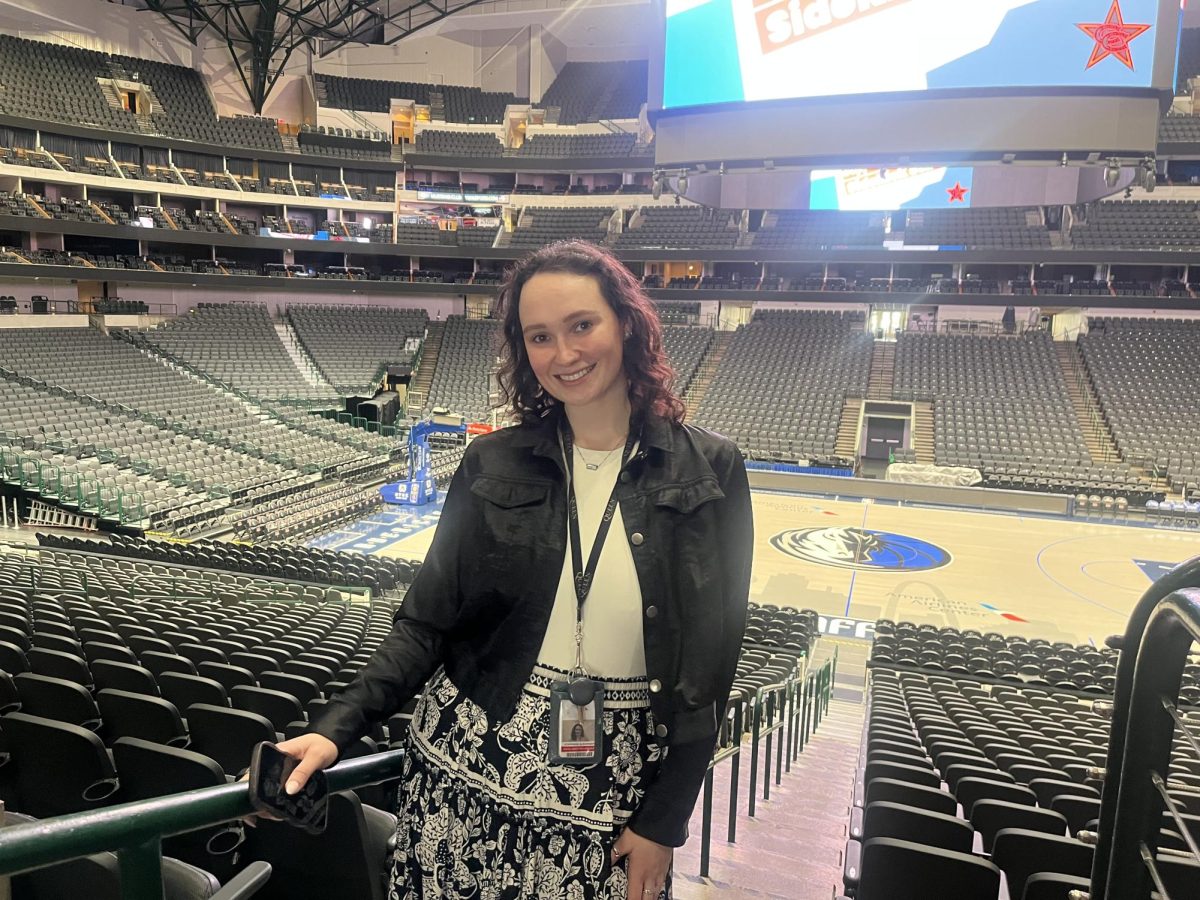by Divya Kumar
News Editor
Are you Facebook friends with Lauren Taylor? Think back to how you know her. Did you meet her at a football game? Or maybe she was in one of your classes at school? She is a sophomore at CHS and the two of you have mutual friends online, so there’s obviously no harm in adding her. There’s always the chance that you’ll end up meeting her, and adding her on Facebook is the first step towards that, right?
Wrong. You’ll never meet Lauren Taylor because she isn’t real. She’s listed under the Coppell High School network, “likes” Taylor Swift and The Notebook and has a friendly information box; this is seemingly enough for 550 of you to accept her friend request, even though you don’t know her. It took fifteen minutes for the members of The Sidekick to upload some typical teenage-girl information and a random picture to get 550 people to believe that Lauren Taylor was a real person attending the high school. If it was this easy for us to fool so many of you, imagine how much deeper it could go for others who attempt to make their pages more realistic.
Now think back to how many other friends you have on Facebook that you do not really know, that you just added because you saw that they went to your high school and that you have several mutual friends. You have just given someone you do not know all your information: your school, your class schedule, pictures of yourself and where you spend your time, your Skype address and more. All this person has to do is put forth a friendly gesture, send you a quick chat or message, and they’ve got you in the palm of their hands. You played into their trap that easily.
But don’t feel bad, it’s not just you. If we had opened up Lauren Taylor to people even further outside of the CHS network, it’s likely that she would have had a lot more people accept. Fact is, as a culture, we’ve just become overly accustomed to being lax on the internet. Websites such as Omegle and Chat Roulette promote talking to strangers and sharing information; but these sites allow a person to remain unconnected and untraceable. Social networking sites do not.
The Internet is a good tool to use in order to breach communications, but it is imperative to remember that the threat it poses is greater now than ever before. Uploading too much personal information on websites such as Facebook is dangerous, especially when you’re allowing people that you don’t know to see this information. You might be adding someone dangerous or, on the other hand, you could be adding someone from a college admissions board. You’ve just shown them all the “cool” things you do that you didn’t really feel fit to put on your application. Just like that, your application has been voided.
Use common sense on websites. Don’t post your address and your phone number, don’t add people that you don’t know and at the very least try to make your profile private. These websites are helpful tools for communications, but they shouldn’t be allowed to expand past that in order to become more harmful than helpful.
There are many people out there who utilize these websites in order to toy with people. There may be people who create “Lauren Taylors” to try to get closer to unknowing students, but there are also those on the other hand of the spectrum, those people who you do actually know, yet are still able to hurt you over the internet. It’s a whole new form of teenage torture: cyber bullying.
As has been emphasized for years, the Internet is a place for people to share their thoughts, to say things that they wouldn’t be able to say in real life. Because of the wide range of opportunities that this opens, cyber bullying has spread like wildfire through social networking sites and websites that allow anonymous comments.
Coppell, just like any other high school, has been hit hard by such a form of technological abuse. Though many may feel like such bullying doesn’t exist since it isn’t as readily seen in physical forms at school, this cyber bullying is equally as threatening in its verbal form. The lack of face-to-face contact that the Internet allows cyber bullies to remain anonymous, oftentimes making them bolder. Websites such as Formspring – one that allows users to ask anything they wish while retaining anonymity – are prime examples of ones that allow such cyber bullying to flourish.

“Overwhelmingly, students have told me that Formspring is really out of hand right now,” Teen Leadership teacher Nicky Fryman said. “When it comes to something like Formspring, what are you really getting out of it compared to the amount of risks involved? Somebody might say something kind of funny anonymously, but most people are using it to cowardly say disgusting, inappropriate, hurtful things, or rumors and flat out lies.”
These posts can range from small insults to more profane abuses, and while the victims of cyber bullying are not physically injured, these spiteful comments can leave a profound mark.
“I thought it would be fun to get a Formspring,” sophomore Lucy Coles said. “But people started asking me rude questions, and I got a lot of really mean comments. I couldn’t believe that people would go out of their way to try to embarrass me online. I don’t know who would do these kinds of things, and since the posts are anonymous, I’ll probably never find out.”
This aspect is yet another dangerous one of cyber bullying – the anonymity allows the bully to remain unchecked and therefore never caught for their malicious acts. It is for this reason why many students may sometimes turn a blind-eye to cyber bullying, or not even know how prevalent it is at the high school.
“It wasn’t before [the most recent SPUR session] that I knew about how widespread bullying was at Coppell,” an anonymous student said. “I had made a Formspring and deleted it soon afterwards because of how hurtful all the posts were. I thought it was just me that was getting picked on. But I saw that a lot of other kids had faced the same kinds of struggles, while there were some who were just oblivious to the whole incident in general, which is kind of shocking considering how much cyber bullying I see all over the internet. I think some people unintentionally say mean things on the internet without even realizing that what they’re doing is bullying and it is hurting people.”
While most people may be unaware that their words can be considered as “bullying” – in the form of gossip or rumors – there are those students who understand the methods in which cyber bullying is easier than verbal bullying tend to abuse this. Because of the lack of face-to-face confrontation that cyber bullying brings about, some teenagers seem to utilize these aspects.
“I know that the people bullying me knew they were bullying me,” Anonymous said. “They made stinging attacks at certain characteristics, remaining unchecked because of the fact that they knew I would never be able to figure out who they were. It hurt, and I can’t even argue back or try to get help for this kind of bullying, because I won’t be able to know who’s doing it to me or the reasons behind why they are doing it.”
For students facing such issues, there are still ways to find help, even for “anonymous” bullying. Shutting down a Formspring and talking to adults, such as parents and counselors, can help solve the problem.
Be it through such spiteful comments that promote cyber bullying or simply adding people that you don’t know, it is evident that such overly relaxed attitudes in regards to the Internet have detrimental side effects. It is important to make sure to exercise the same caution on the Internet that would be used in real-life: no talking to strangers, no insults thrown to other people. These words can be hurtful and dangerous. So go home; delete all the gossip you’ve posted on the Internet, delete any pictures that you wouldn’t want a college to see, and delete any people you’ve added that you don’t know. Start with Lauren Taylor.








